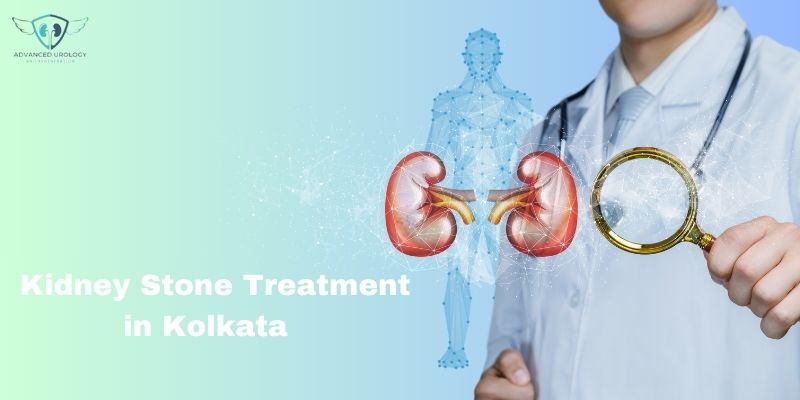Are you familiar with the excruciating pain of kidney stones? These tiny, yet mighty crystals can wreak havoc on your health and well-being. But fear not! In this comprehensive guide, we will delve into all things kidney stones - from understanding their causes to managing them effectively. Let's take control of our health together and kick those pesky kidney stones to the curb!
What are kidney stones and what causes them?
Kidney stones are hard deposits that form in the kidneys when certain substances in the urine crystallize. These tiny crystals can range in size from a grain of sand to a pea and can cause intense pain as they move through the urinary tract.
The most common types of kidney stones are calcium stones, which are formed by excess calcium in the urine. Other types include uric acid stones, struvite stones, and cystine stones. Dehydration, high levels of certain minerals in the body, and family history can all contribute to the formation of kidney stones.
Factors such as diet high in sodium or sugar, obesity, digestive diseases, and certain medications can increase the risk of developing kidney stones. Understanding these causes is crucial for effectively managing and preventing them.
Symptoms and diagnosis of kidney stones
When it comes to kidney stones, being aware of the symptoms is crucial for early detection and treatment. The signs of kidney stones can vary from person to person, but some common indicators include intense pain in the back or side, nausea and vomiting, frequent urination, and blood in the urine.
If you experience any of these symptoms, it's essential to consult a healthcare professional for an accurate diagnosis. Your doctor may recommend tests such as blood tests, imaging studies like CT scans or ultrasounds, and urine analysis to confirm the presence of kidney stones.
Diagnosing kidney stones promptly can help prevent complications and guide appropriate treatment options. Remember that early intervention is key in managing this condition effectively.
Treatment options for kidney stones
When it comes to treating kidney stones, there are several options available depending on the size and location of the stones.
For smaller stones that can pass on their own, your doctor may recommend drinking plenty of water to help flush them out naturally. Pain medication can also be prescribed to manage any discomfort during this process.
In cases where the stones are too large to pass or causing severe symptoms, medical intervention may be necessary. One common treatment is extracorporeal shock wave lithotripsy (ESWL), which uses shock waves to break up the stones into smaller pieces that can then be passed more easily.
Another option is ureteroscopy, where a thin scope is inserted through the urethra and bladder to remove or break up larger stones in the ureter or kidney. In more complex cases, surgery may be required to remove stubborn stones.
It's important to consult with a urologist like Dr. Bivek Kumar in Kolkata who can evaluate your specific situation and recommend the best course of action for treating your kidney stones effectively.
Prevention methods for kidney stones
Are you looking to prevent the discomfort of kidney stones? Here are some effective methods to help keep those pesky stones at bay.
Stay hydrated! Drinking an adequate amount of water throughout the day can help dilute urine and prevent minerals from crystallizing and forming stones. Aim for at least 8-10 glasses of water daily.
Watch your diet. Reduce sodium intake, as high levels of salt can lead to calcium buildup in the urine. Limit consumption of oxalate-rich foods like spinach, nuts, and chocolate which can contribute to stone formation.
Maintain a healthy weight through balanced nutrition and regular exercise. Obesity is a risk factor for kidney stones, so staying active and eating well can lower your chances of developing them.
Consider dietary supplements if needed. Some studies suggest that certain supplements like citrate or pyridoxine (vitamin B6) may help reduce the risk of stone formation.
By implementing these prevention methods into your lifestyle, you can take proactive steps towards safeguarding your kidneys from painful stone formation.
Diet and lifestyle changes to reduce the risk of kidney stones
Maintaining a healthy diet and lifestyle is crucial in reducing the risk of developing kidney stones. Drinking an adequate amount of water throughout the day helps to dilute urine and prevent minerals from forming crystals. Including citric acid-rich foods like lemons, oranges, and grapefruits can also help inhibit stone formation.
Reducing sodium intake is important as high levels of salt can lead to calcium buildup in the urine. Limiting oxalate-rich foods such as spinach, chocolate, nuts, and beets can also be beneficial for those prone to kidney stones. Consuming enough dietary calcium from sources like yogurt or milk may actually lower the risk of stone formation by binding with oxalates in the digestive tract.
Incorporating more fruits and vegetables into your diet provides essential nutrients while promoting overall health. Regular physical activity not only supports a healthy weight but also aids in preventing kidney stones by improving circulation and reducing stress levels on the body's systems. By making these simple yet impactful changes, you can proactively reduce your likelihood of experiencing painful kidney stones down the road.
Coping with the pain and discomfort of kidney stones
Dealing with the pain and discomfort of kidney stones can be incredibly challenging. The sharp, stabbing sensation in your back or side can make even simple tasks feel overwhelming. The constant urge to urinate paired with intense pain during passage is enough to disrupt anyone's daily routine.
During these difficult moments, finding ways to manage the pain becomes crucial. Drinking plenty of water can help flush out small stones and alleviate some of the discomfort. Over-the-counter pain medications may also provide temporary relief while waiting for medical intervention.
Applying heat packs to the affected area or taking warm baths can offer comfort and relax tense muscles. Distraction techniques such as reading a book, listening to music, or practicing deep breathing exercises might help shift focus away from the pain momentarily.
Remember that you're not alone in this battle against kidney stones. Seeking support from loved ones or joining online forums where others share similar experiences can provide valuable emotional support during tough times.
When to seek medical attention for kidney stones
Experiencing kidney stones can be incredibly painful and uncomfortable. While some small stones may pass on their own, it's crucial to know when to seek medical attention for kidney stones. If you are experiencing severe pain in your back or side, accompanied by nausea, vomiting, fever, or blood in your urine, it's time to consult a healthcare professional.
If the pain is persistent and does not improve with home remedies such as hydration and over-the-counter pain medication, seeking medical help is essential. Additionally, if you have a history of kidney stones or underlying health conditions that may increase your risk of complications from kidney stones, don't hesitate to reach out to a urologist for guidance.
Ignoring symptoms or delaying treatment could lead to further complications or blockages in the urinary tract. It's always better to be safe than sorry when it comes to managing kidney stone issues effectively.
Conclusion: Empowering yourself to take charge of your health and manage kidney stones effectively
Empowering yourself to take charge of your health and manage kidney stones effectively is crucial for maintaining a high quality of life. By understanding the causes, symptoms, treatment options, prevention methods, and necessary diet and lifestyle changes associated with kidney stones, you can proactively work towards preventing their formation or managing them more effectively if they do occur.
Remember that seeking guidance from a qualified healthcare professional like Dr. Bivek Kumar, one of the best urologists in Kolkata specializing in kidney stone treatment in Kolkata, is essential in developing a personalized plan tailored to your specific needs.
By staying informed, making proactive choices regarding your health, and taking prompt action when needed, you can navigate the challenges posed by kidney stones with confidence. Stay hydrated, follow a balanced diet low in oxalate-rich foods such as spinach and nuts while ensuring adequate intake of citric acid sources like lemons and oranges.
Above all else: prioritize self-care and don't hesitate to reach out for support when necessary. With the right knowledge and resources at hand – including expert medical advice – you can successfully manage kidney stones and pave the way for improved well-being. Take control today; your health is worth it!


No comments yet